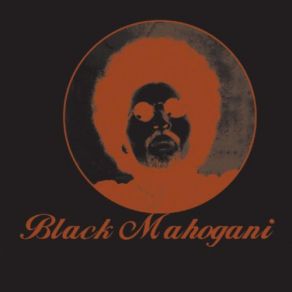Black Mahogani
Download links and information about Black Mahogani by Moodymann. This album was released in 2004 and it belongs to Downtempo, Electronica, House, Techno, Hip Hop/R&B, Soul, Dancefloor, Pop, Dance Pop genres. It contains 10 tracks with total duration of 01:00:42 minutes.

|
|
|---|---|
| Artist: | Moodymann |
| Release date: | 2004 |
| Genre: | Downtempo, Electronica, House, Techno, Hip Hop/R&B, Soul, Dancefloor, Pop, Dance Pop |
| Tracks: | 10 |
| Duration: | 01:00:42 |
| Buy it NOW at: | |
| Buy on Amazon | |
| Buy on Songswave €1.71 | |
| Buy on iTunes $9.99 | |
Tracks
[Edit]| No. | Title | Length |
|---|---|---|
| 1. | Holiday (featuring Moodymann Feat, Roberta Sweed) | 3:38 |
| 2. | Roberta Jean Machine (featuring Roberta Sweed | Norma Jean Bell) | 3:09 |
| 3. | I Need You So Much (featuring Moodymann Feat, Roberta Sweed) | 2:41 |
| 4. | Runaway (featuring Roberta Sweed | Norma Jean Bell) | 11:48 |
| 5. | I'm Doing Fine (featuring Amp Dog Knight) | 9:16 |
| 6. | Shades Of Jae | 6:55 |
| 7. | Riley's Song | 3:53 |
| 8. | Back At Bakers (on Livernois) | 2:56 |
| 9. | Mahogani 9000 | 7:58 |
| 10. | Black Mahogani | 8:28 |
Details
[Edit]Along with Misled, Black Mahogany stands as arguably the most epic and quintessential record from Moodymann's late-'90s rise to prominence. Other records such as the split I Can't Kick This Feeling When It Hits/Music People EP and the Shades of Jae EP may live on as the most succinct records released by Moodymann producer Kenny Dixon, Jr. and may get more play in the clubs, but Black Mahogany's mammoth size and epic nature make it a record that the Detroit house artist's legion of loyal followers will most treasure. The double-sided 12" includes one version of the song on each side, with a much longer version including an extended intro sampling a blaxploitation film that alludes to the Shaft-like badass ghetto hero facade of the Moodymann character image. The alternate version clocks in at a much shorter ten minutes and opens with Dixon's shout-outs to inner-city Detroit neighborhoods. The slightly different intros help illustrate the underlying motif of Moodymann as a sincere underground artist from Detroit's infamous inner-city ghetto that accompanies the music on the record. Both versions sound similar in a musical sense with the same shuffling percussive rhythm, same bass guitar, same twinkling harp melody, and same signature keyboard melody. In essence, Black Mahogany is a continuation of the classic Moodymann template that first appeared on rather simple early records by the artists such as "The Dancer," except this record brings more complexity to the structuring and more sounds to the mix. Yet no matter how much Moodymann has furthered his song writing, his music still sounds surprisingly live for house music. This live feel propels this record beyond a mere house track, bringing a sense of timelessness to it that can be compared songs such as "Shaft" and "Pusherman" — a song that Dixon actually samples for Black Mahogany's outro. In sum, records such as Black Mahogany confirm Dixon's status as not merely a house producer but a producer of soul-infused, post-modern funk music with a subtle hint of a house influence and a more than subtle dose of a badass ghetto pride motif.